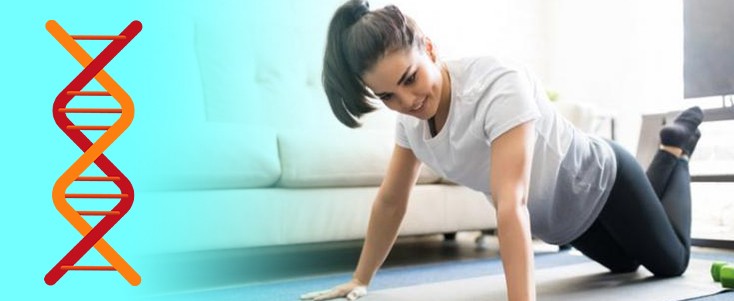How Your Genes Respond To Your Physical Activities

Being physically active, or in simple words, the exercises you do has a positive impact on your health and fitness. In general, individuals exercise to achieve all or one of the below mentioned goals:
- To lose weight
- To keep themselves fit and active
- To prevent lifestyle diseases
- To build muscles and strength
But do you know if your particular exercise routine is actually having any effect on your body, or if it is helping you achieve your goals?
To achieve your fitness goals, your exercises should always be planned according to your genetics. Your genes affect the response of your body to exercise. Hence, your possibilities of losing weight, or achieving other health benefits depends on your DNA or genes. To understand how your genetics influences your exercise performance, you can opt for a genetic test. Your genetic test report outlines everything about you including your body’s response to various kinds of exercises/physical trainings. You are genetically unique - what works for others might not work for you - know your genetic response to foods and exercises, and plan your lifestyle to achieve your goals.
Your genes have certain markers that can show if you are predisposed to training for endurance activities like cycling, running; or for power activities like HIIT, weight-lifting, sprinting. They also inform you about the likelihood of injury and the time it will take for recovery after exercise. Understanding such valuable information can empower you to personalize your exercises more efficiently and maximize your health benefits.
What happens when you have a likelihood of endurance?
Having a predisposition towards endurance means your muscles are designed for weight training or longer cardio sessions. Your genes increase your likelihood to do exercises that need huge amounts of oxygen intake and repetitive workouts that result in lean muscle mass.
What happens when you are a power responder?
In case, your genetics show better response to power, it means your body tends to respond better to high intensity workouts that are for short durations and include heavy weights.
It is important to understand your DNA and plan an exercise routine that works for your body. If you stick to it, you can gain the best results in accordance with your goals. A genetic test can give you a detailed indication to what your body is predisposed to adapt to - body fat decrease or muscle mass development, or both.
Want to know more about how a genetic test works?
